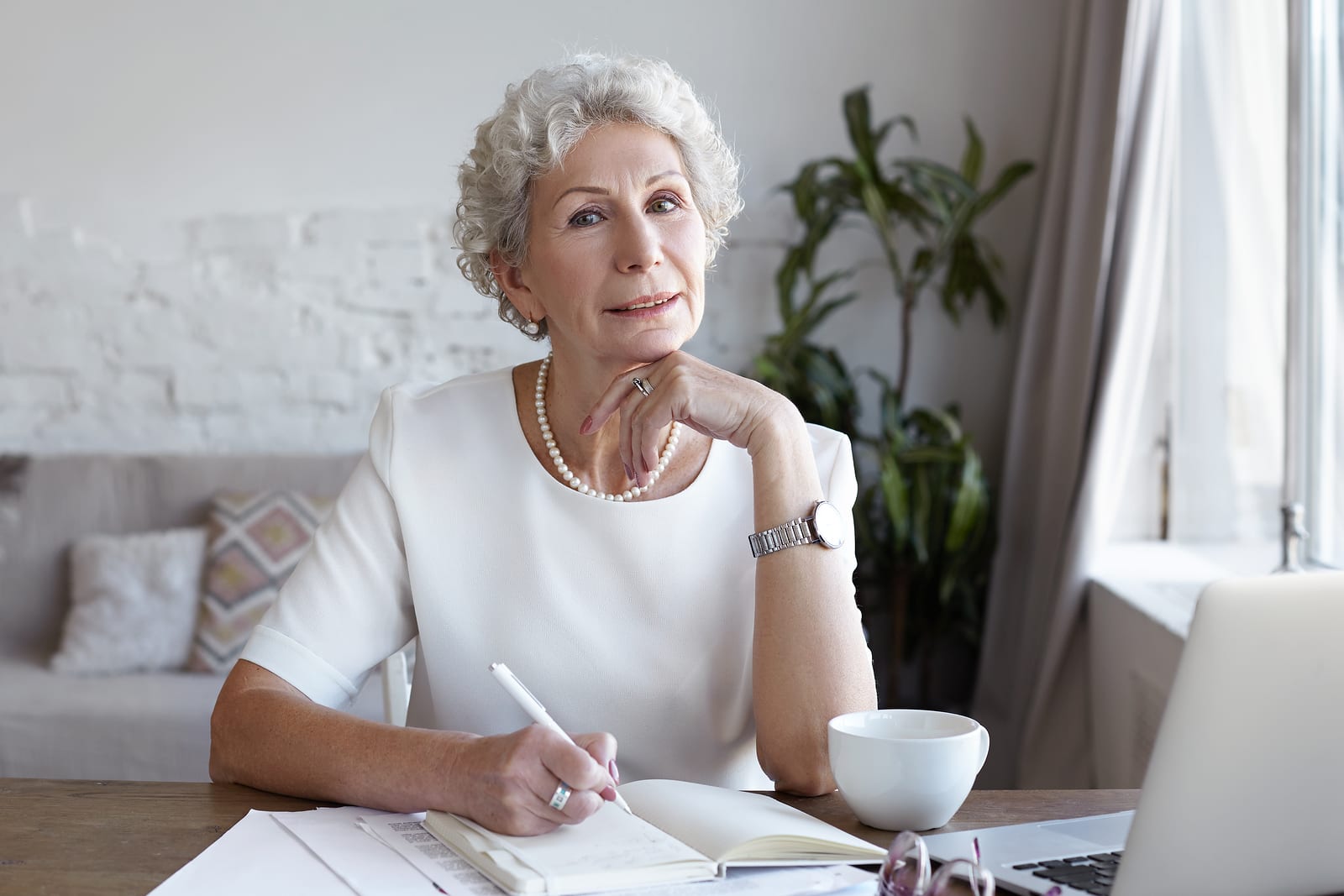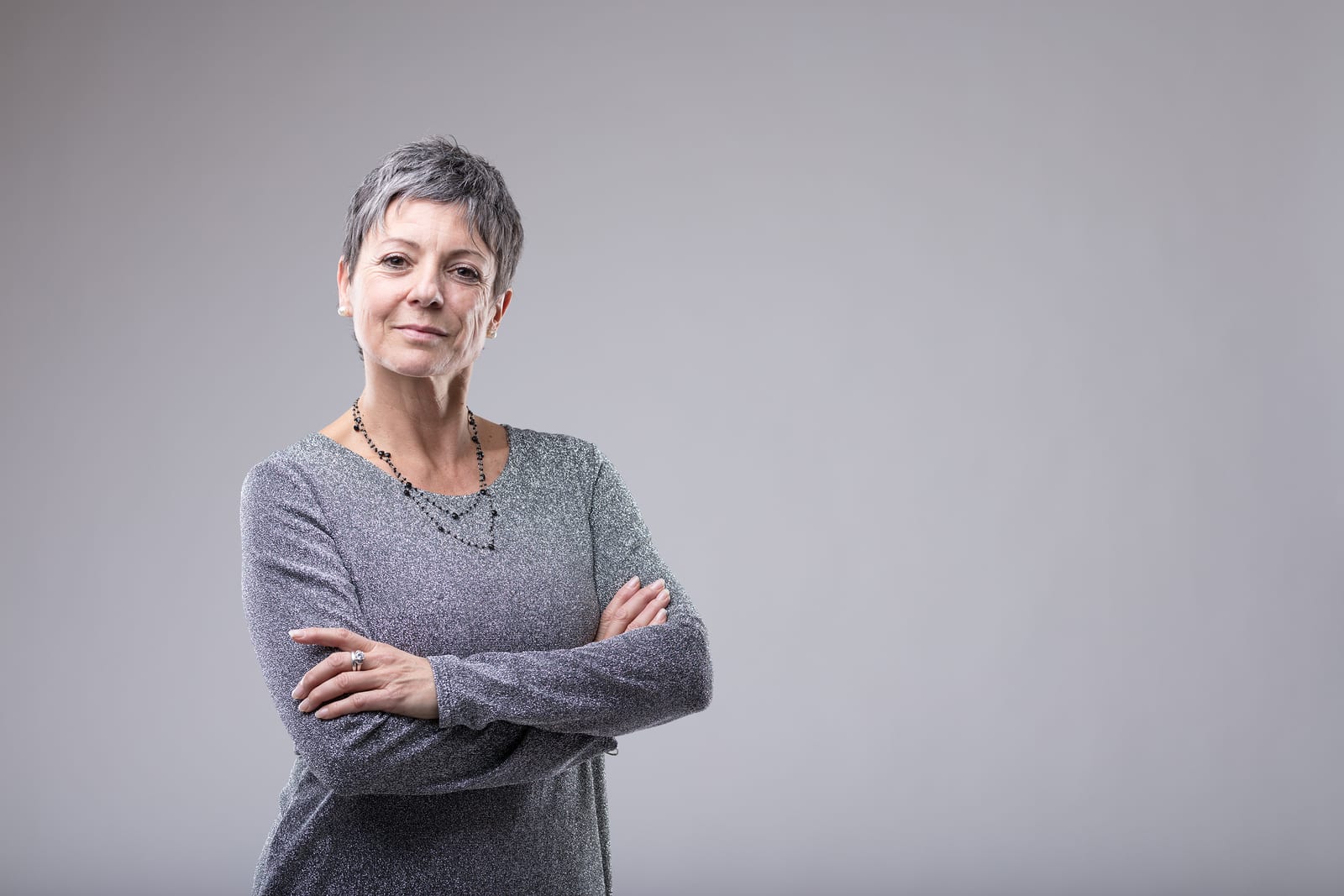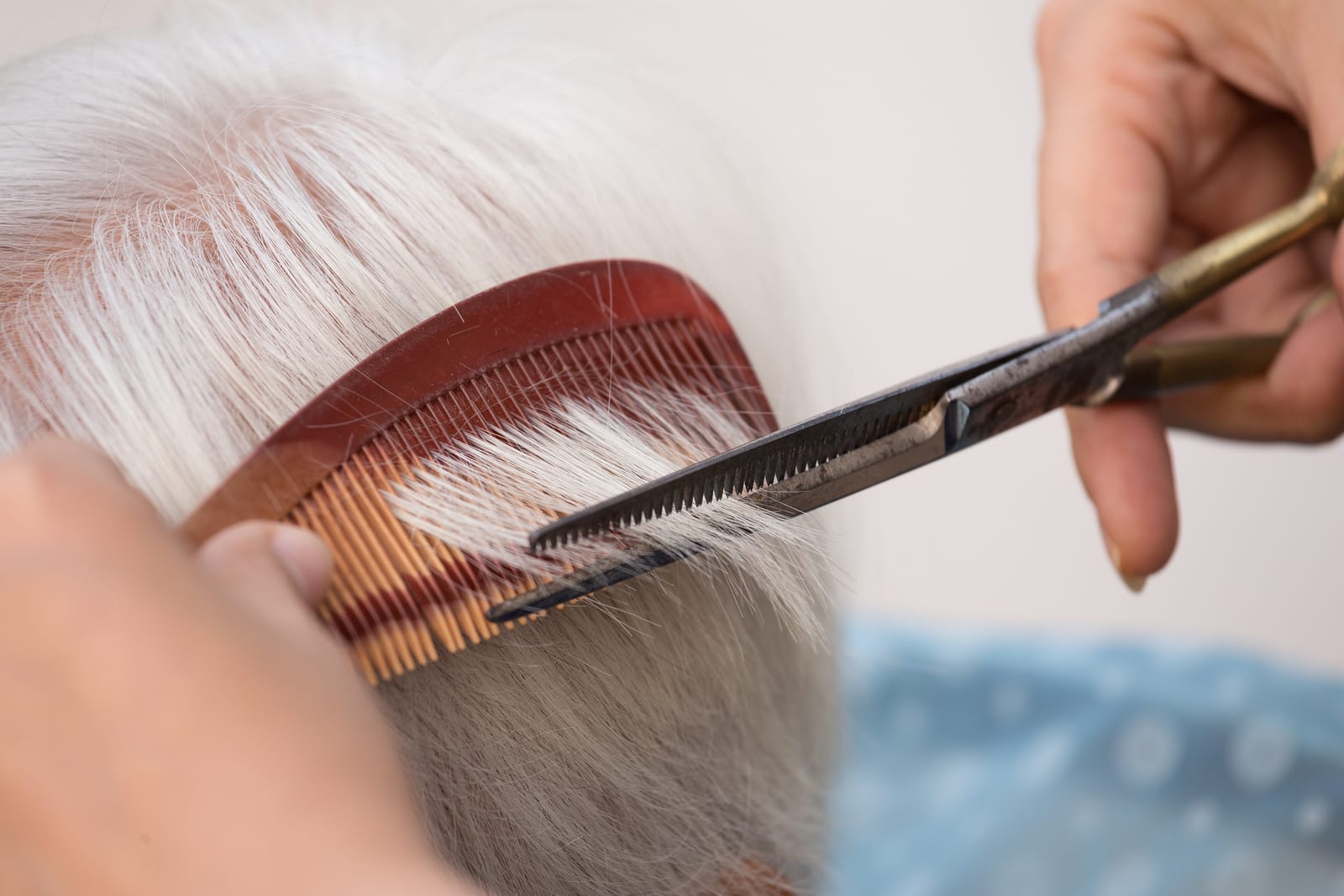Aging can have all manner of side effects on our bodies. Muscles might lose tone, we might put on weight more easily, and our joints ache after less activity. The shine may not come as easily for day to day activity. Another part of our bodies changes as we age: the hair.
It’s no secret that hair does different things as we get older. It can change colors, consistency, or just stop growing all together. Why though? What makes it so that our hair, which has been with us for decades, suddenly stop being the same top mop we’ve grown so accustomed to? Women tend to face a different set of struggles than men in this regard.
Societal norms say it’s okay for men to go gray and lose hair, but women are still expected to handle the same obstacles. Let’s unpack some ways to adapt to the changing needs of hair as it ages.
Why does hair change with age?
As with many things in our bodies, our hair is largely dictated by our hormones. These chemicals tell our hair follicles to continue growing, or to produce more oil, and can even adjust the chemical composition of our hair. During significant hormonal shifts such as those during menopause, hair is one of the casualties.
When your hair follicles get different combinations of hormones it might go through all of the usual changes associated with aging. It might change and then lose its color, dry out, become brittle, and be more prone to breaking. This means that all of the work you put into your hair care routine has to start over. It’s still your hair, but you just have to treat it a little differently.

Drying Hair Treatments
When your hair is drying out, that’s largely due to your hair follicle not producing the same amount of oils that it once did. It is possible to find oils and shampoos that can replace this and protect strands of hair from the elements. In addition to adding something to your routine, it might be time to take something out.
Hair dryers are the go to for a quick and easy hair drying experience. If your hair is already drying out however, adding blasts of hot air is definitely not going to make things any better. This and other heat based methods of drying can actually reduce the effectiveness of oils and set you right back to square one.
Brittleness
Brittleness has a few different causes, but one that aging hair sees a lot of are the constant chemical changes being applied to restore a youthful appearance. Dyes, straighteners, and bleaches all result in damaged hair. When you no longer produce the oils your hair needs, these kinds of changes strip away the structure of the strands making it prone to breakage. It can be argued that this is less of a direct side effect of aging and more of a combination of factors, but we think that’s kind of splitting hairs.
The Gray Shift
Going gray is a natural part of growing older for most people. At the very least a majority of people see a lightening of hair color as they age. This is because the hair follicles produce less pigment. When compared with the other changes in hair, this is largely cosmetic. The color of the hair doesn’t necessarily determine the strength.
Some people dye and treat their hair to maintain color, but as we mentioned above, this can actually further damage hair. Going gray is not the end of the world, but there are some preventative measures in the works. A gray hair prevention pill by L’Oreal looks to make it possible to keep from going gray, but embracing it as a natural part of living in your body is always a great alternative.
Thinning Coverage
When hair ages, it can also grow thinner. The follicles still produce hairs, but they don’t offer the same coverage as they used to. This can be a natural part of aging, but also potentially caused by vitamin deficiencies and thyroid hormone changes. By shifting diet or talking to a doctor, there may be a prescribed solution to this issue in the form of supplemental vitamins or hormone treatments. Otherwise, there are oils and products that can be used to give your hair a thicker appearance overall. Finding the best method comes down to individual taste and the kind of look you want to maintain.

Explore New Looks
Different kinds of hair look better in different styles. You may have styled your hair in one particular way for years, but now that it’s different, maybe it’s time to try something new. Longer hair has obviously been growing for longer and has been exposed to more of the elements.
Because of the factors mentioned earlier, this can lead to difficulty in maintaining a longer hair style. Cutting it shorter can give you a new look and reduce the stress on your follicles. It’s also less maintenance and makes it easier to style when there’s less of it!
Aging Hair Is Natural
Hair ages just like the rest of the body, and while everyone ages differently, everyone does age. Because of the hormonal origin of many of these changes, talking with a qualified professional can help identify the causes and even counter the effects. The experts at Renewed Vitality can help identify causes and establish treatment regiments if necessary. Reach out to set up your consultation today!





